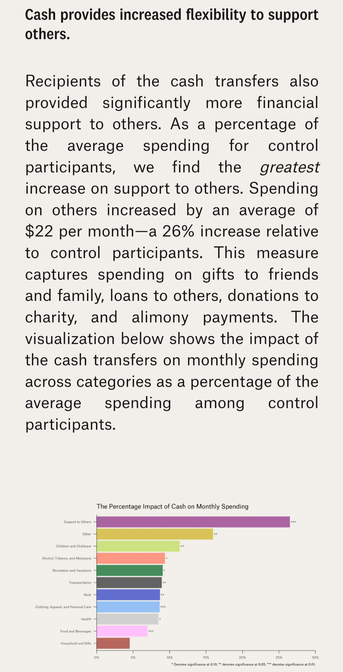This thinking is so alien to economists and financial types that they barely discuss it. https://www.openresearchlab.org/findings/key-findings-spending
This thinking is so alien to economists and financial types that they barely discuss it. https://www.openresearchlab.org/findings/key-findings-spending
Rather odd that they include alimony payments. That's not optional giving or charity or support any more than making rent or paying school fees.
Alimony is supporting someone other than yourself, not paying for goods and services intended for your own benefit. I think that's why it's included in the category of supporting others, which is broader and more objective than altruism.
@sccook @KevinMarks
It's also court ordered. It's more like paying back a loan to somebody than anything else.
All the other examples are voluntary, something you can choose to do or not. This is very different in that aspect.


 he/him
he/him